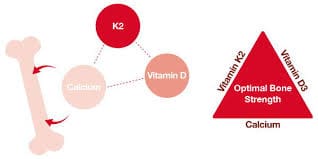When people talk about mental health, the focus is often on the brain—chemical imbalances, stress, or life experiences. But scientists have uncovered another key player in mental wellbeing: your microbiome.
This vast ecosystem of bacteria, fungi, and other microorganisms—mostly housed in your gut—isn’t just about digestion. It plays a surprisingly powerful role in regulating mood, managing stress, and even influencing conditions like anxiety and depression.
In fact, the microbiome and the brain are in constant conversation through what’s known as the gut-brain axis. This two-way communication system means that what happens in your gut can shape how you feel, think, and behave. And just as importantly, your mental state can influence your gut microbes.
Let’s explore how this fascinating connection works—and why nurturing your microbiome may be one of the smartest ways to support your mental health.
The Microbiome: Your Inner Community
Your gut is home to trillions of microorganisms, more than the number of stars in our galaxy. This collection of bacteria, viruses, fungi, and archaea is unique to you—no two people have the same microbial fingerprint.
These microbes don’t just help digest food; they produce vitamins, regulate metabolism, train your immune system, and generate compounds that directly affect the brain.
When the microbiome is balanced (scientists call this eubiosis), your digestion, mood, and overall health benefit. But when it’s disrupted (dysbiosis), problems can appear—ranging from gut discomfort to inflammation, low mood, or even mental health conditions.
Mental Health: More Than Just Brain Chemistry
Traditional views of mental health often focused only on the brain. Treatments targeted neurotransmitters like serotonin, dopamine, and GABA, all of which affect mood, motivation, and calmness.
But research now shows that your brain doesn’t work in isolation. It depends on constant input from your body—and especially from your gut. About 95% of serotonin, for example, is made in the gut, not the brain. Many other “feel-good” chemicals are also produced by gut microbes or influenced by them.
This means your microbiome is a critical partner in mental wellbeing.
The Gut-Brain Axis: A Two-Way Highway
The gut-brain axis is the communication network linking your digestive system and brain. It involves:
- Nerves – The vagus nerve runs from your gut to your brainstem, carrying real-time information.
- Hormones – Gut microbes influence stress hormones like cortisol.
- Immune signals – Gut bacteria help regulate inflammation, which strongly affects mood and brain function.
- Neurotransmitters – Microbes produce or modulate key brain chemicals like serotonin, dopamine, and GABA.
This means your gut isn’t just a digestion site—it’s a second brain, influencing how you feel and how you respond to stress.
Microbiome and Mood
Your gut microbes can directly affect mood in several ways:
- Serotonin production
Certain gut bacteria help produce serotonin precursors. Low serotonin is linked with depression and anxiety. - GABA modulation
Some microbes generate GABA, a calming neurotransmitter that reduces anxiety and promotes relaxation. - Dopamine influence
Gut microbes affect dopamine pathways, which are linked to motivation and pleasure. - Endorphins and other chemicals
The microbiome interacts with systems that influence feelings of reward, relaxation, and focus.
In short: the right microbial balance helps your brain chemistry lean toward happiness and calm.
Stress and the Microbiome
Stress is both a cause and a consequence of gut imbalance. When you’re stressed, your body releases cortisol, which can change gut motility, reduce protective mucus, and alter microbial populations.
At the same time, an imbalanced microbiome can increase inflammation and send distress signals to the brain, making stress harder to manage.
This vicious cycle explains why digestive issues often flare during stressful times and why chronic stress is a risk factor for mental health problems.
Microbiome and Anxiety
Research shows that people with anxiety often have less diverse gut microbiomes. Experiments in mice have demonstrated that transferring gut microbes from anxious individuals can actually make the mice more anxious.
Conversely, probiotics—beneficial bacteria—have been found to lower stress hormones and improve calmness in both animals and humans. This has led to the term psychobiotics: probiotics and prebiotics that positively influence mental health.
Microbiome and Depression
Depression has long been linked to chemical imbalances, but inflammation is also a key factor. Dysbiosis in the gut can lead to a “leaky” gut barrier, allowing toxins into the bloodstream. This triggers immune responses and low-grade inflammation that can affect brain function and mood.
People with depression often show distinct differences in gut bacteria compared with healthy individuals. Restoring balance—through diet, probiotics, or lifestyle changes—can help improve symptoms and resilience.
Microbiome and Cognitive Function
The microbiome’s influence isn’t limited to mood—it also affects memory, learning, and clarity of thought. Short-chain fatty acids produced by healthy gut microbes, for example, support brain cells, reduce neuroinflammation, and may protect against conditions like Alzheimer’s disease.
When the microbiome is disrupted, “brain fog” and difficulty concentrating often follow. This is why supporting gut health can make you feel sharper and more focused.
Everyday Signs of the Gut-Mind Connection
You’ve probably noticed this link in your own life:
- “Butterflies in your stomach” when nervous.
- Upset digestion during stressful times.
- Food cravings linked to mood.
- Feeling foggy or irritable after poor diet or antibiotics.
These everyday experiences highlight just how closely your gut and brain are connected.
What Disrupts the Gut-Brain Connection?
Modern habits can weaken the microbiome’s ability to support mental health. Common disruptors include:
- Antibiotics – They kill good microbes along with bad ones.
- Ultra-processed foods – Low in fiber, high in additives, they starve beneficial bacteria.
- Chronic stress – Alters microbial balance and weakens gut lining.
- Poor sleep – Shifts microbial rhythms, affecting mood regulation.
- Sedentary lifestyle – Physical inactivity reduces microbial diversity.
How to Support Your Microbiome for Mental Health
The good news: you can actively nurture your microbiome to strengthen the gut-brain connection.
1. Eat a Fiber-Rich Diet
- Fruits, vegetables, legumes, and whole grains feed beneficial microbes.
- Prebiotics like chicory root, onions, garlic, and bananas are especially helpful.
2. Add Fermented Foods
- Yogurt, kefir, sauerkraut, kimchi, and miso provide live bacteria that support balance.
3. Consider Probiotics and Prebiotics
- Targeted supplements can help restore healthy populations and produce mood-supporting compounds.
4. Manage Stress
- Practices like meditation, deep breathing, and nature time reduce cortisol, protecting gut health.
5. Prioritise Sleep
- 7–9 hours of quality rest helps both your brain and your microbiome recover.
6. Move Your Body
- Regular exercise increases microbial diversity and supports mental wellbeing.
The Future of Microbiome and Mental Health Research
This field is expanding rapidly. Scientists are testing psychobiotics as potential treatments for anxiety, depression, and stress. Fecal microbiota transplantation (FMT) is being explored for certain conditions, while postbiotics—beneficial compounds made by microbes—are under study as direct therapies.
We’re still in the early days, but the message is clear: mental health care in the future will likely involve the microbiome as much as the brain.
Final Thoughts
Your mental health is not just in your head—it’s also in your gut. The trillions of microbes living inside you constantly influence mood, stress, resilience, and clarity of thought.
When your microbiome is balanced, it produces feel-good chemicals, calms inflammation, and supports a resilient brain. When it’s disrupted, stress, anxiety, depression, and cognitive issues become more likely.
The great news is that you can take steps every day to nurture your microbiome: eat well, move often, rest deeply, manage stress, and enjoy fermented foods. These simple choices help create a thriving inner ecosystem that supports both body and mind.
So next time you think about mental health, don’t stop at the brain. Remember the gut—the second brain—quietly shaping how you feel, think, and live.





